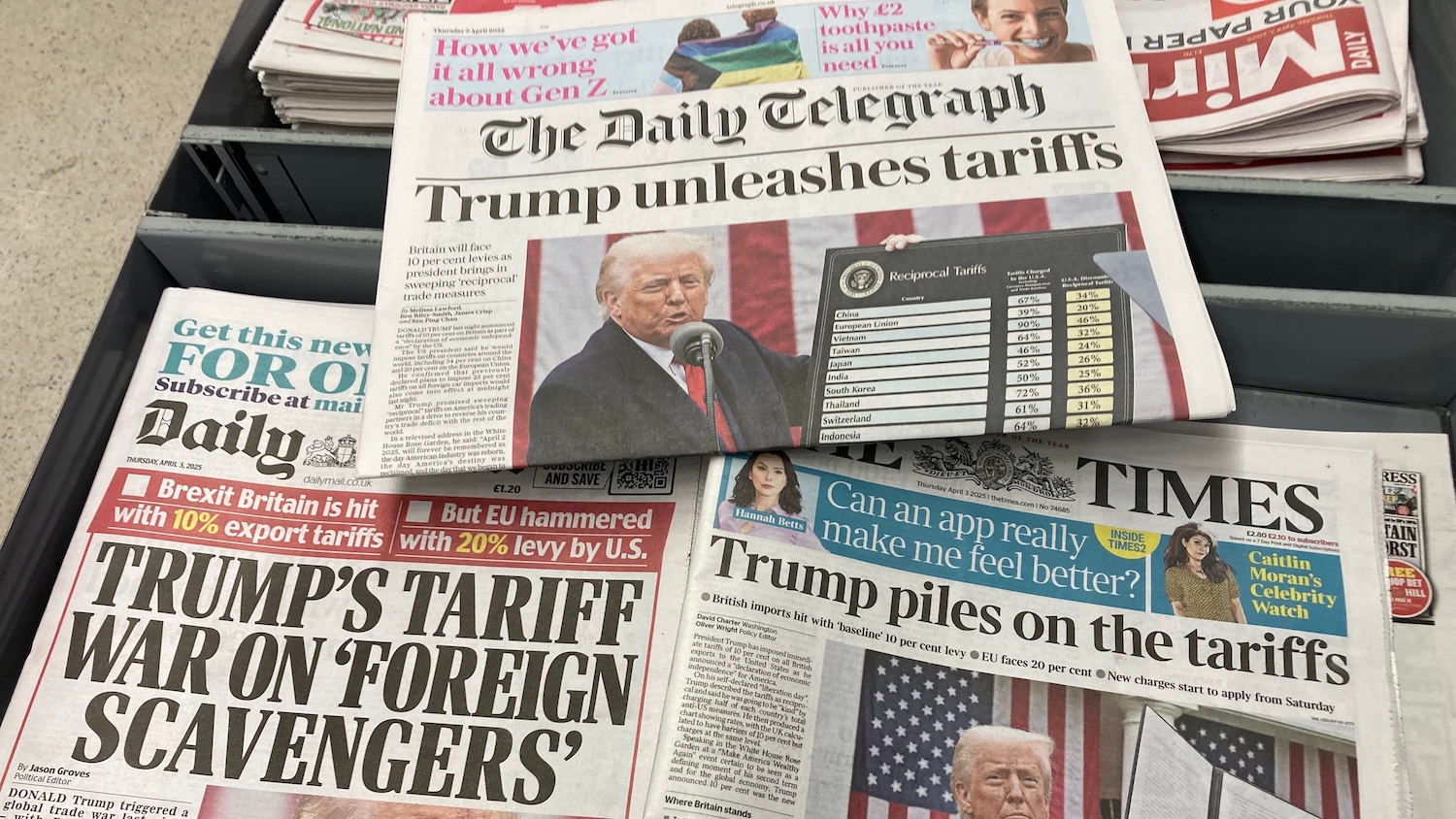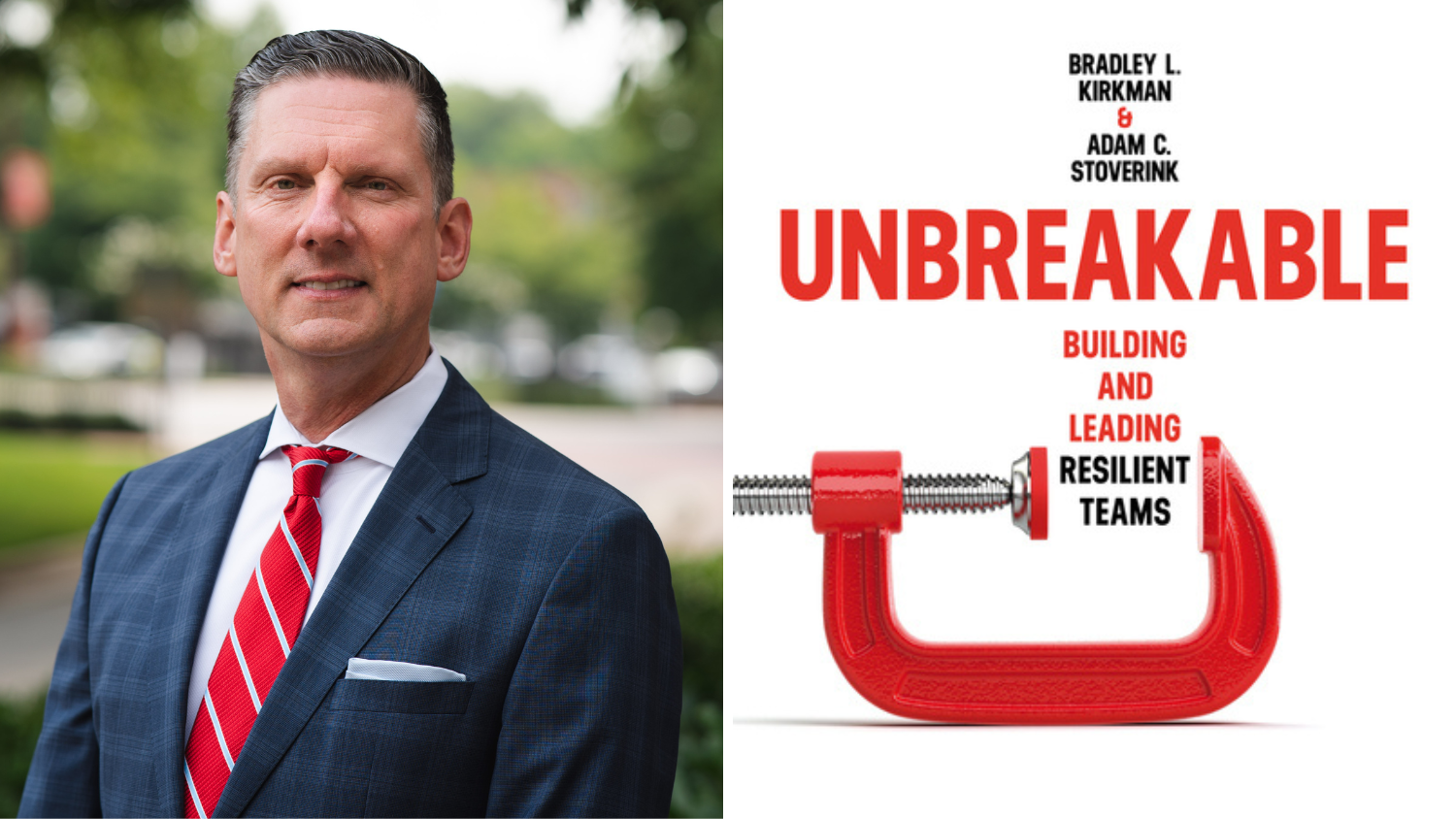Managing Massive Change As Tariffs Shift
Confidence, clarity, and improvisational ability are key for managers and executives, Poole scholar Brad Kirkman says.

On April 2, President Donald Trump announced tariffs on goods imported from 60 countries. Later that week, he paused those country-specific tariffs for 90 days, in favor of a 10% tariff on all imports—except for a 145% tariff on Chinese imports. On May 12, the administration announced an agreement with China to reduce that tariff to 30%.
Each tariff announcement sent ripples through the global economy, challenging businesses that depend on important goods to navigate massive changes on short notice. Each of those organizations is made up of teams, and those teams need four attributes to weather the type of volatility and uncertainty that attends disruptions like tariff changes, according to Brad Kirkman, General (Ret.) H. Hugh Shelton Distinguished Professor of Leadership:
- Confidence in the collective abilities of the team
- Clarity about roles and responsibilities, especially in unforeseen circumstances
- The capacity to improvise when old solutions don’t apply
- The psychological safety to be honest with one another
“These are all important to trying to figure out how to survive and thrive as a business,” said Kirkman, whose book, Unbreakable: Building and Leading Resilient Teams, was named a top leadership book of 2024 by Forbes magazine. “You could take these four attributes to the organizational level, too.”
Kirkman recently discussed historical change management precedents, how individual leaders can guide their teams and more.
How can leaders and managers help guide their teams through this sort of macroeconomic uncertainty?
When you’re helping people through a change process, you obviously want to talk about the business case. In the area of tariffs, that means things like how much they’re going to cost the business and how much you have to pass on to the consumer.
But when it comes to change and adversity, the emotional side of things is even more important than the numbers. With massive change, like the pandemic or macro economic shifts that seemingly happen overnight, we always talk about the importance of helping people. People are going to be all over the map emotionally. Some are going to be excited and thrilled because it’s something new and novel, and they’re all into that. Some people are going to have a more neutral, wait-and-see attitude, and others are going to be pretty despondent about these kinds of changes, right?
So first of all, you have to figure out where your people are on the emotional map. And then you have to have enough versatility in your management toolkit to be able to deal with all those different reactions. It takes emotional intelligence, and there are two key aspects to that: the empathy to appreciate what others are going through and the ability to read others’ emotions. And it’s absolutely critical to be able to regulate your own emotions while you handle this sort of disruption.
The good news about emotional intelligence is that it’s something you can develop. Yes, some people are more naturally empathetic or attuned to others’ emotions. But these are generally things you can develop. If you’ve ever gotten feedback that you’re a little short on emotional intelligence, now would be a good time to look for a leadership development course to help you build that capability.
What advice would you offer an executive right now?
A: There’s some overlap between what managers or supervisors do and what executives do. But when you get to the executive level, it’s more thinking about the vision for the company, not just a team. You need to show consistency and transparency, both to the organization and to stakeholders on Wall Street or elsewhere.
What are the most relevant precedents for the way tariffs have created such massive change so quickly?
The COVID-19 pandemic is certainly one. It affected every single person. When you think about disrupted supply chains, not being able to get raw materials or work collectively in offices and factory settings. There’s also the collapse of the housing market in 2008 and the Great Recession that followed it. That affected anybody that had money in the stock market or in housing.
What can we take away from those events?
The pandemic and the Great Recession taught us that we can get through these things. We are resilient. The challenge is how teams and organizations stay resilient when massive shocks happen. This isn’t going to be the last one, and it seems like they’re actually accelerating.
- Categories:


